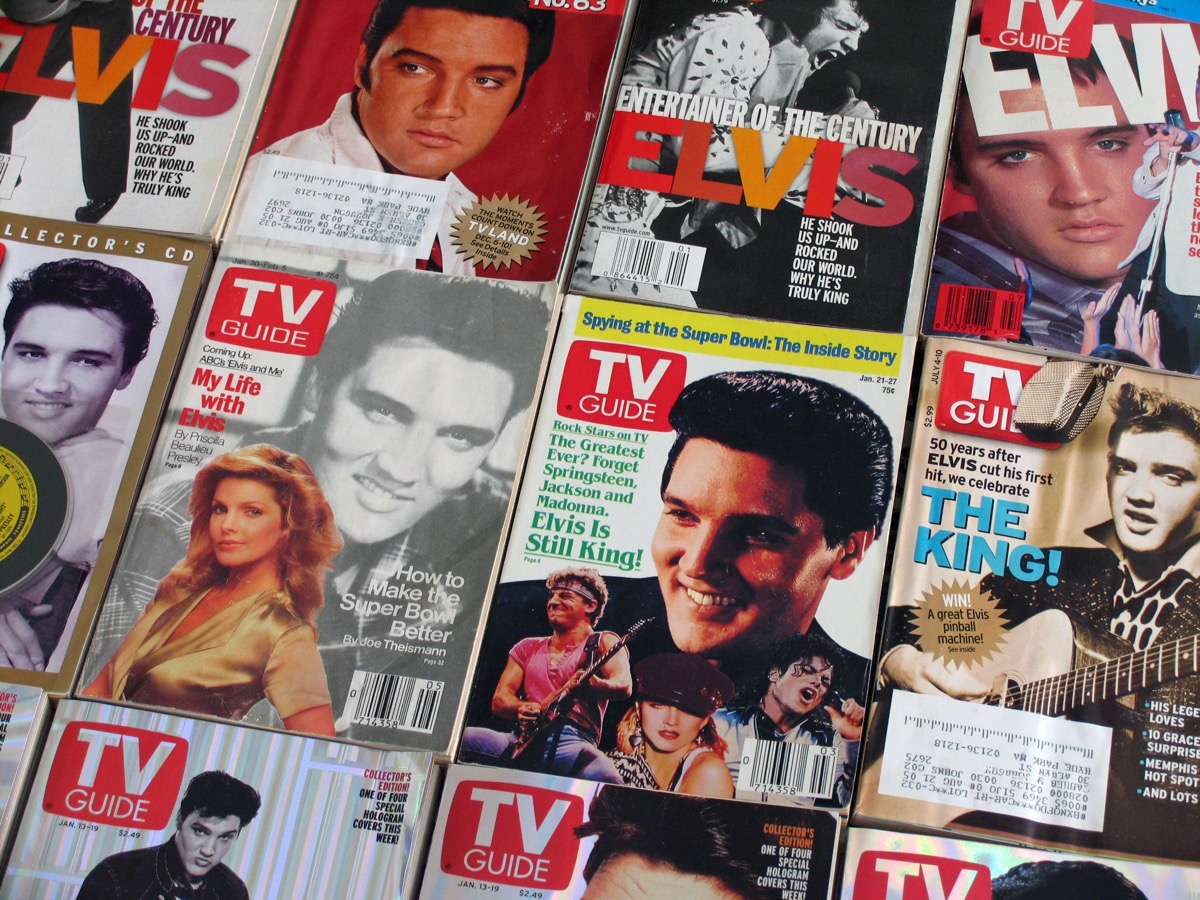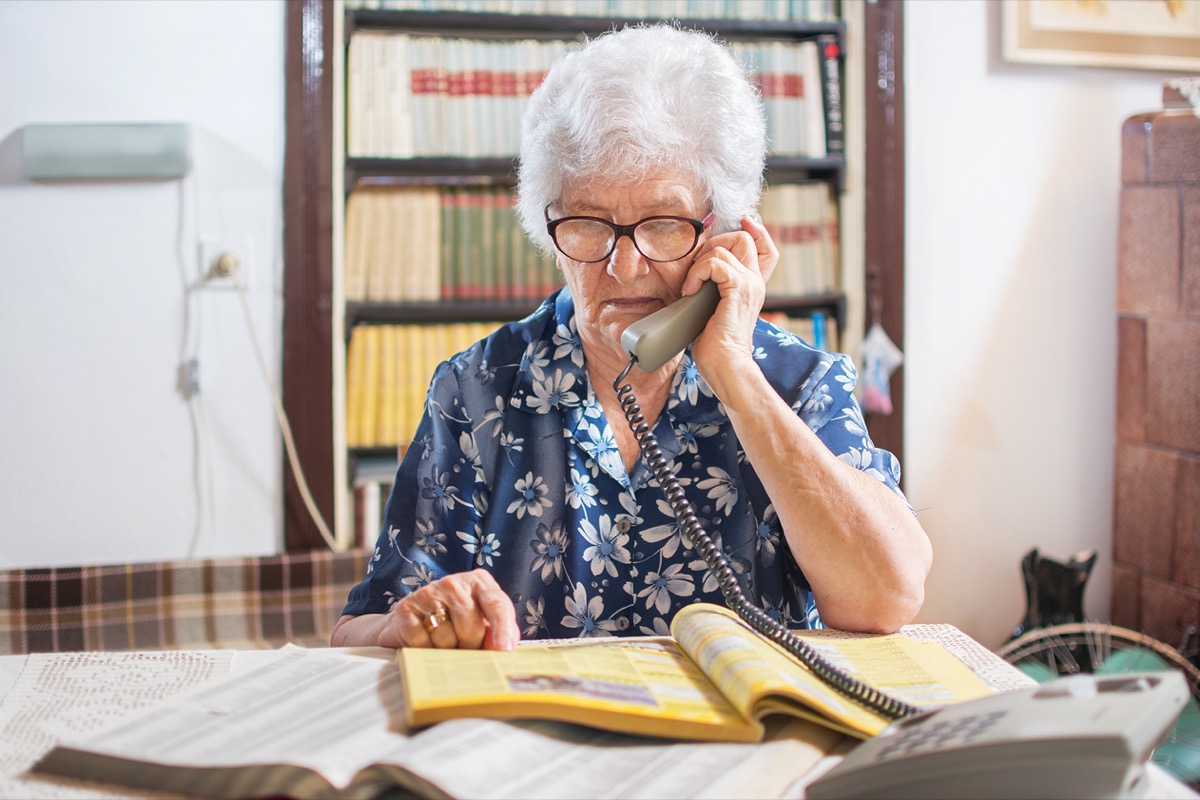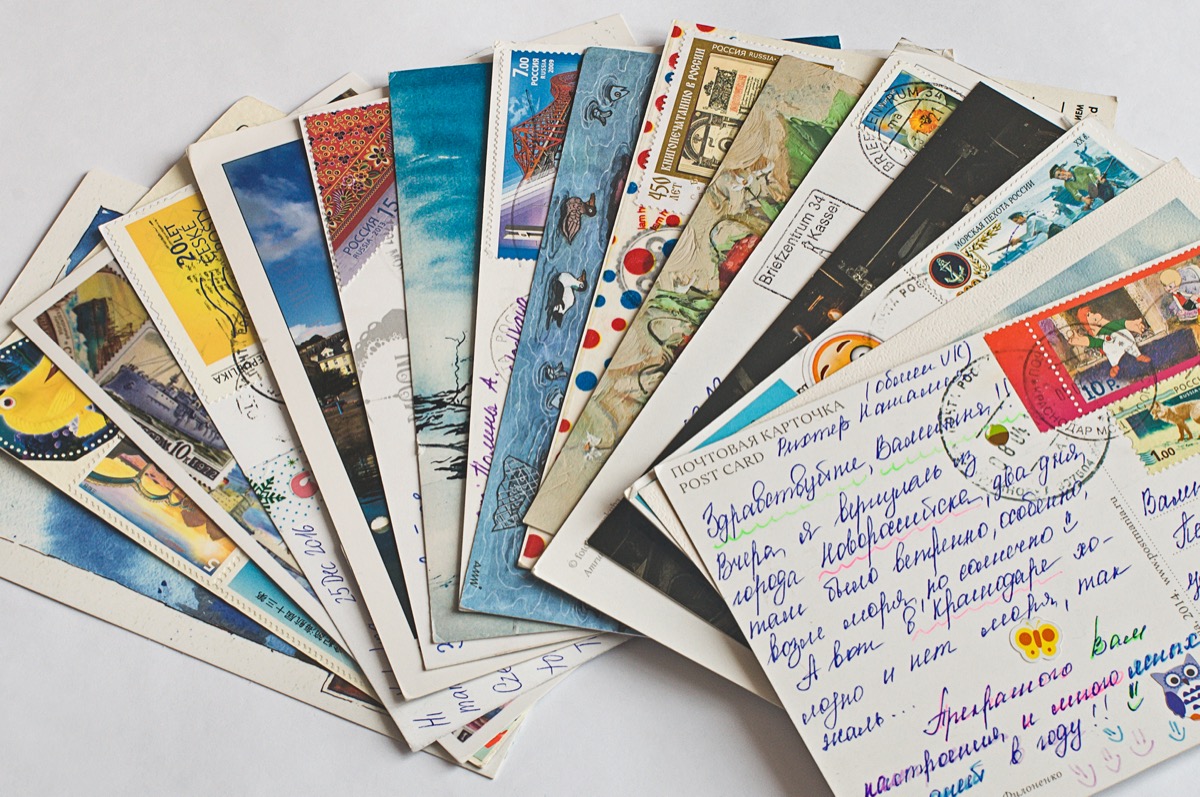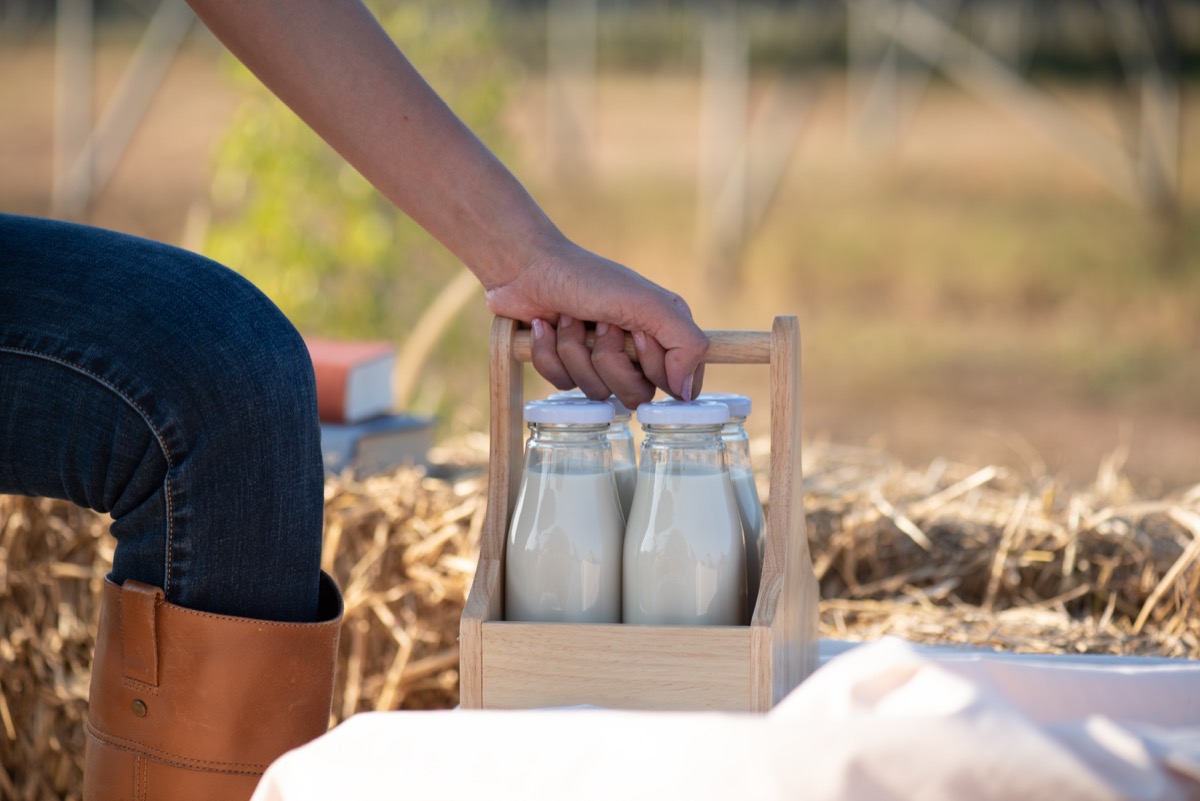If you want to find a show today, all you have to do is search through your streaming platforms or the cable guide on your Smart TV. However, when television first became a household staple, you’d wait to get the TV Guide in the mail so you could make sure not to miss your favorite programs. In fact, TV Guide was the most read magazine in the ’60s, and it had a record circulation of 20 million by 1980. And for more amazing relics from decades past, check out the 25 Reasons We’re Glad We Grew Up in the ’70s. The first telephone directory was printed on a single sheet of cardboard in 1878 and only listed 50 names and addresses (but not numbers), all of which were in Connecticut. This could also be because the phone itself was invented in New Haven by Alexander Graham Bell two years prior. In the following century, the phone book—which was issued annually—became a household staple if you were trying to call a person or business. Yet, the thick book has seen a sharp decline in the past decade. Before the internet, you couldn’t just send someone a link to a breaking story. When you were done reading, you’d have to tear out the newspaper article and mail it if you wanted a friend or family member to read it and know what’s going on. Plus, many people don’t subscribe to print newspapers anymore, instead opting for a digital membership they can access on their phones, tablets, or computers. And for more nostalgic info, sign up for our daily newsletter.ae0fcc31ae342fd3a1346ebb1f342fcb Today, if you go somewhere or see something cool, you immediately share it on social media. (Or, let’s be honest, you went in the first place to “do it for the ‘gram” and show your friends.) But that wasn’t always the case. In the old days, you’d search for the perfect postcard of the attraction or destination you’re visiting, so you could write about your experiences and send it to your eager pen pal. No, these bottles didn’t exactly come through the postal service. Still, from the turn of the century to the 1960s, when many people didn’t have refrigerators in their homes, the milkman would make an important doorstep delivery. This trend stopped, however, as grocery stores made it easier and cheaper to buy milk on your weekly errand run. And for more surprising tidbits about the postal service, check out the 15 Secrets Your Mail Carrier Won’t Tell You About Their Job.




